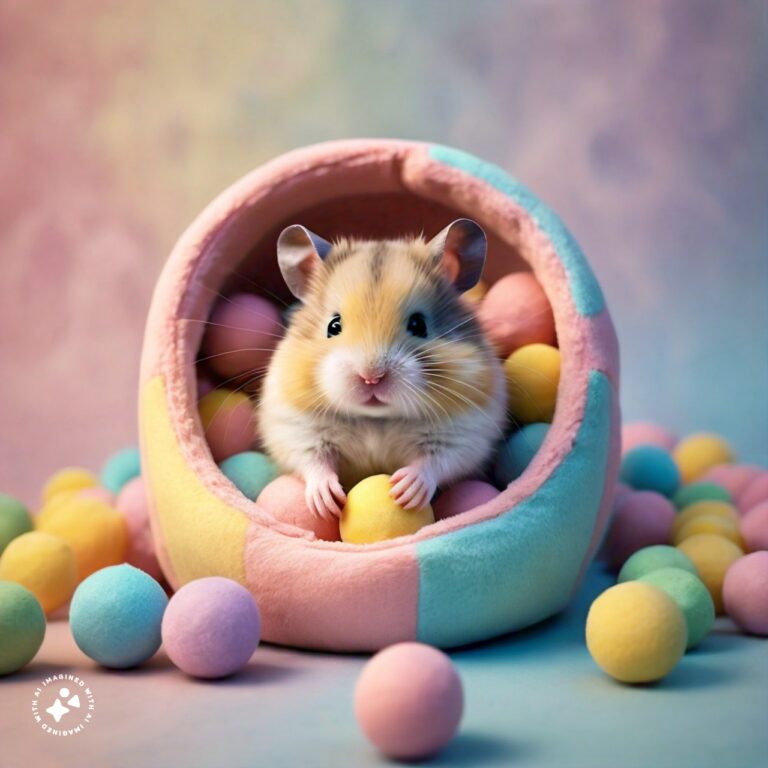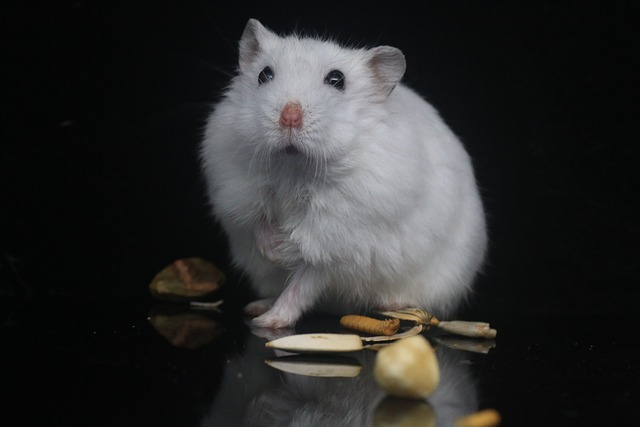Can Muslim Keep Hamsters As A Pet -Hamsters.pk
Understanding the Islamic Perspective on Pet Ownership
In Islam, the relationship between humans and animals is guided by the principles of compassion, respect, and responsible stewardship. While Islam allows the keeping of certain animals as pets, it is essential to understand the Islamic perspective on pet ownership to ensure compliance with religious guidelines.
The Permissibility of Pet Ownership in Islam
Islam permits the keeping of certain animals as pets, provided that their presence does not cause harm or inconvenience to others. The Quran and Hadith mention various animals, such as cats, horses, and birds, in a positive light. However, some animals, like dogs, have specific guidelines surrounding their ownership due to their ritual impurity (najis).
Responsibilities of Pet Owners in Islam
Muslim pet owners have a duty to provide their pets with proper care, including:
- Food and Water: Pets must be fed an appropriate diet and given access to clean water regularly.
- Shelter: Owners must provide suitable housing that protects pets from the elements and ensures their comfort.
- Healthcare: Pets should receive necessary medical attention, vaccinations, and treatments to maintain their health and well-being.
- Humane Treatment: Islam emphasizes the importance of treating animals with kindness and compassion, prohibiting any form of cruelty or neglect.
Balancing Pet Ownership with Islamic Obligations
While pet ownership is allowed in Islam, it should not interfere with a Muslim’s religious obligations. For example, if a pet’s presence disrupts prayers or causes ritual impurity, the owner must take necessary measures to maintain cleanliness and fulfill their religious duties.
Prohibited Animals in Islam
Islam prohibits the keeping of certain animals as pets, such as pigs, which are considered ritually impure. Additionally, wild animals or those that pose a danger to human life should not be kept as pets.
Conclusion
Pet ownership in Islam is permissible, subject to certain guidelines and responsibilities. By understanding the Islamic perspective on pet ownership, Muslims can ensure that their decision to keep a pet aligns with their religious beliefs and obligations. Ultimately, the relationship between a Muslim and their pet should be based on compassion, respect, and responsible care.
Examining the Permissibility of Keeping Hamsters as Pets in Islam
When considering pet ownership, Muslims often seek guidance from Islamic teachings to ensure that their actions align with religious principles. In this article, we will explore the permissibility of keeping hamsters as pets in Islam.
Understanding the Islamic View on Animals
Islam teaches compassion and kindness towards all living beings, including animals. The Quran and Hadith emphasize the importance of treating animals with respect and providing them with proper care. In general, Islam allows the keeping of animals as pets, as long as their presence does not cause harm or inconvenience to others.
Hamsters as Pets: A Closer Look
Hamsters are small, non-aggressive rodents that are often kept as pets. They are known for their cute appearance, easy maintenance, and relatively low cost. When examining the permissibility of keeping hamsters as pets in Islam, we must consider several factors:
- Cleanliness: Hamsters are generally clean animals that groom themselves regularly. They do not possess any inherent qualities that would render them ritually impure (najis) in Islam.
- Behavior: Hamsters are typically docile and do not pose a significant threat to human health or safety when properly cared for.
- Care and Maintenance: Providing appropriate housing, food, water, and healthcare for hamsters is relatively simple and does not conflict with Islamic principles.
Islamic Rulings on Hamster Ownership
Based on the aforementioned factors, most Islamic scholars consider the keeping of hamsters as pets to be permissible (halal) in Islam. However, it is essential to note that this permissibility is contingent upon the owner’s ability to provide proper care and maintain cleanliness in accordance with Islamic guidelines.
Responsibilities of Muslim Hamster Owners
Muslim hamster owners have a responsibility to ensure that their pets receive:
- Adequate Housing: Hamsters should be provided with a suitable cage that offers ample space for exercise, hiding places, and a comfortable sleeping area.
- Proper Nutrition: A balanced diet consisting of fresh food, water, and occasional treats is necessary for a hamster’s health and well-being.
- Regular Cleaning: Hamster cages should be cleaned regularly to maintain a hygienic environment and prevent the spread of diseases.
- Veterinary Care: Hamsters should receive routine check-ups and necessary medical treatment to ensure their health and well-being.
Conclusion
In conclusion, keeping hamsters as pets is generally considered permissible in Islam, provided that owners fulfill their responsibilities towards their pets and maintain cleanliness in accordance with Islamic principles. By offering hamsters a loving and caring home, Muslim pet owners can enjoy the companionship of these delightful creatures while adhering to the teachings of their faith.
Caring for Hamsters: Ensuring Compliance with Islamic Principles

As Muslims, it is essential to ensure that our actions, including the care of our pets, align with Islamic principles. When keeping hamsters as pets, we must provide them with proper care and attention while adhering to the guidelines set forth by our faith.
Understanding the Islamic Perspective on Animal Welfare
Islam places great emphasis on the compassionate treatment of animals. The Prophet Muhammad (peace be upon him) taught that showing kindness to animals is a means of attaining Allah’s pleasure and rewards. As such, Muslim hamster owners must prioritize the well-being of their pets and provide them with the necessary care and attention.
Providing Appropriate Housing
One of the most important aspects of caring for hamsters is providing them with a suitable living environment. When setting up a hamster cage, consider the following:
- Size: The cage should be spacious enough to allow the hamster to move freely, exercise, and engage in natural behaviors.
- Bedding: Use safe, non-toxic bedding materials that are comfortable and absorbent, such as wood shavings or paper-based bedding.
- Accessories: Include a water bottle, food bowl, hiding places, and toys to keep your hamster stimulated and comfortable.
- Cleanliness: Clean the cage regularly to maintain a hygienic environment and prevent the spread of diseases.
Providing a Balanced Diet
Hamsters require a balanced diet to maintain their health and well-being. When feeding your hamster, keep the following in mind:
- Commercial Food: Offer a high-quality, commercially prepared hamster food that meets their nutritional needs.
- Fresh Produce: Supplement their diet with small amounts of fresh vegetables and fruits, such as carrots, cucumbers, and apples.
- Water: Ensure that your hamster always has access to clean, fresh water in a water bottle.
- Treats: Offer occasional treats in moderation, such as unsalted sunflower seeds or small pieces of whole-grain bread.
Maintaining Cleanliness
Cleanliness is a fundamental principle in Islam, and it extends to the care of our pets. To ensure compliance with Islamic principles, hamster owners should:
- Regular Cleaning: Clean the hamster cage, accessories, and surrounding area regularly to maintain a hygienic environment.
- Proper Waste Disposal: Remove soiled bedding and droppings daily and dispose of them appropriately.
- Personal Hygiene: Wash your hands before and after handling your hamster or their cage to prevent the spread of germs.
Providing Veterinary Care
Islam encourages seeking medical treatment for both humans and animals. As a responsible hamster owner, you should:
- Regular Check-ups: Schedule regular visits to a veterinarian who specializes in small animals to monitor your hamster’s health.
- Timely Treatment: If your hamster shows signs of illness or injury, seek veterinary care promptly to ensure their well-being.
Conclusion
Caring for hamsters while ensuring compliance with Islamic principles involves providing them with appropriate housing, a balanced diet, maintaining cleanliness, and seeking veterinary care when necessary. By fulfilling these responsibilities, Muslim hamster owners can ensure that their pets receive the love, care, and attention they deserve while adhering to the teachings of Islam.
Weighing the Benefits and Challenges of Hamster Ownership for Muslim Families
When considering pet ownership, Muslim families often seek to balance the joys and responsibilities of caring for an animal with their Islamic beliefs and practices. Hamsters, being small, cute, and relatively low-maintenance, have become popular pets in many households. However, it is essential to weigh the benefits and challenges of hamster ownership to make an informed decision that aligns with Islamic principles.
Benefits of Hamster Ownership
- Companionship: Hamsters can provide companionship and offer a source of comfort and entertainment for family members, especially children.
- Teaching Responsibility: Caring for a hamster can help teach children valuable lessons about responsibility, empathy, and the importance of caring for Allah’s creatures.
- Stress Relief: Interacting with a pet hamster can be a stress-relieving activity, promoting a sense of calm and well-being.
- Educational Opportunities: Observing and learning about hamsters can be an educational experience for children, fostering an appreciation for the wonders of Allah’s creation.
Challenges of Hamster Ownership
- Time and Commitment: Hamsters require daily care, including feeding, cleaning, and interaction. Muslim families must be prepared to dedicate time and effort to meet their hamster’s needs.
- Financial Responsibilities: Owning a hamster involves initial costs for the cage, accessories, and food, as well as ongoing expenses for bedding, treats, and veterinary care.
- Space Requirements: Hamsters need a spacious cage with proper ventilation and room for exercise. Muslim families must ensure they have adequate space to accommodate a hamster cage in their homes.
- Allergies and Health Concerns: Some family members may be allergic to hamsters or develop respiratory issues due to the bedding materials. It is crucial to consider potential health concerns before bringing a hamster into the home.
- Balancing Pet Care with Islamic Obligations: Muslim hamster owners must ensure that caring for their pet does not interfere with their religious duties, such as prayer times and maintaining cleanliness in the home.
Islamic Considerations
- Permissibility: According to most Islamic scholars, keeping hamsters as pets is permissible as long as they are treated with kindness and their presence does not cause harm or inconvenience to others.
- Cleanliness: Maintaining cleanliness is essential in Islam. Hamster owners must ensure that their pet’s cage is regularly cleaned and that the animal’s presence does not compromise the cleanliness of the home or interfere with prayer spaces.
- Responsibility: Islam teaches compassion and responsibility towards animals. Muslim hamster owners must provide their pets with proper care, attention, and veterinary treatment when necessary.
Conclusion
Hamster ownership can offer numerous benefits to Muslim families, such as companionship, teaching responsibility, and providing educational opportunities. However, it is essential to carefully consider the challenges, including time commitment, financial obligations, and potential health concerns. By weighing these factors and ensuring compliance with Islamic principles, Muslim families can make an informed decision about whether hamster ownership is right for them. Ultimately, the decision should be based on the family’s ability to provide a loving, responsible, and Islamically-compliant home for their pet hamster.











